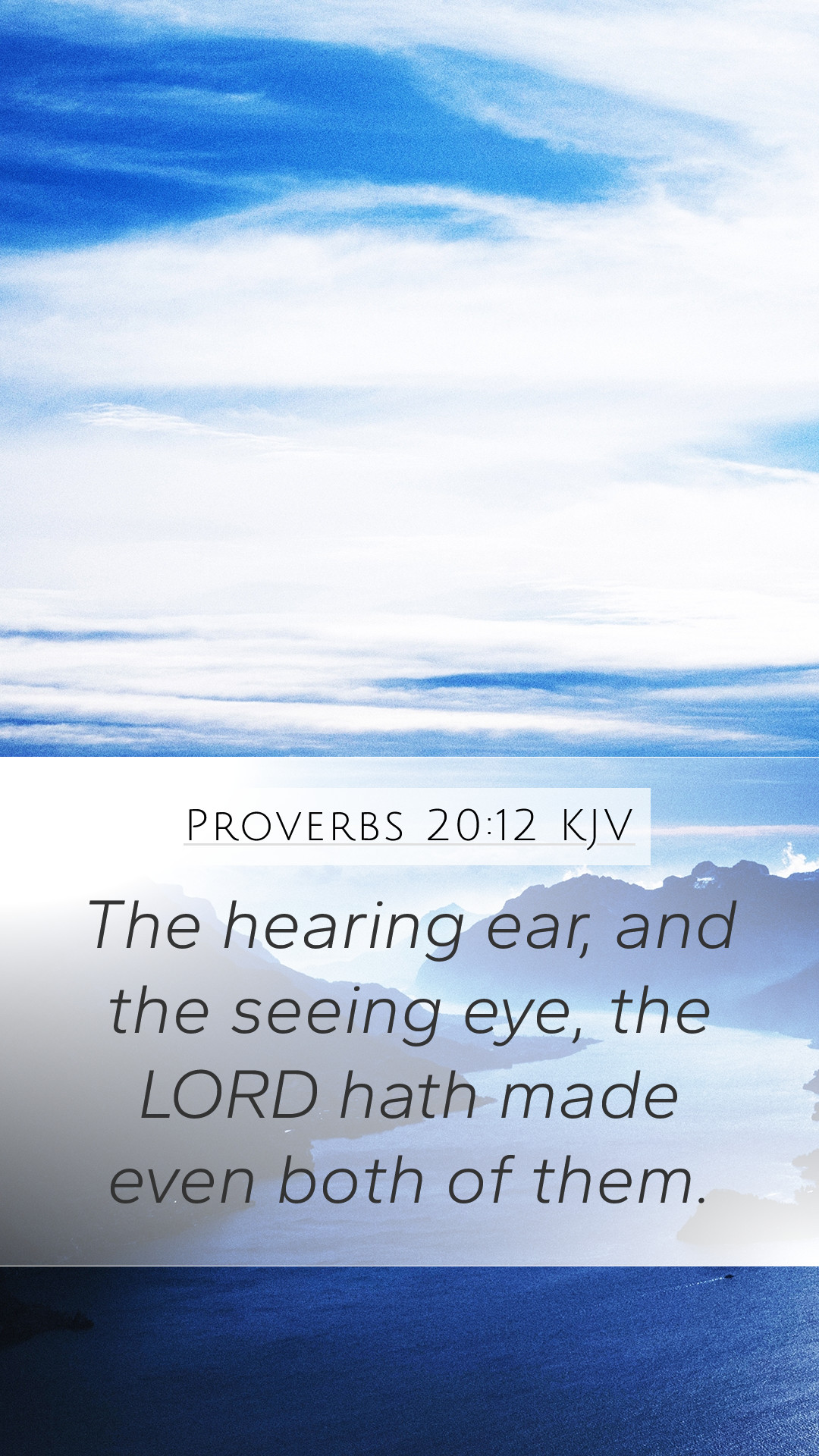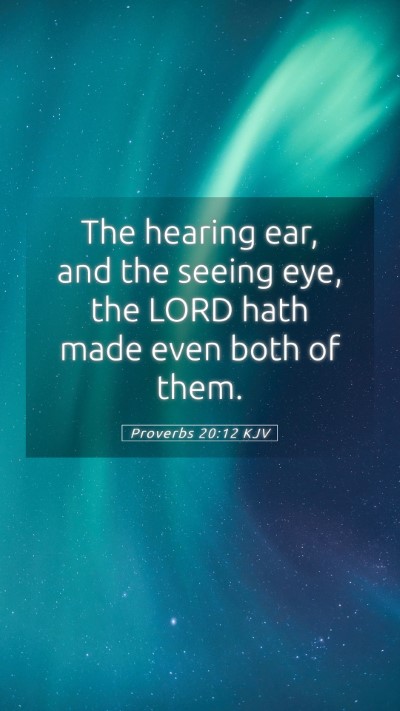Understanding Proverbs 20:12
Proverbs 20:12 states: "The hearing ear, and the seeing eye, the Lord hath made even both of them." This verse emphasizes the divine creation of our senses and highlights the importance of perception and understanding in our lives. Let us explore the meaning of this verse through insights from public domain commentaries, focusing on its implications for Bible verse meanings, interpretations, and explanations.
Scriptural Context
In the Book of Proverbs, the wisdom literature is rich with teachings aimed at guiding individuals in their moral decisions and interactions. Proverbs 20:12 specifically draws attention to the faculties of hearing and sight, which God has bestowed upon humanity. This verse aligns with the broader theme of wisdom permeating the Proverbs, where sound judgment and discernment are repeatedly highlighted.
Commentary Insights
Matthew Henry's Commentary
Matthew Henry articulates that this verse serves as a reminder that our sensory faculties are gifts from God. The ability to hear and see are not to be taken for granted, as they enable us to gather knowledge and discern the world around us. He suggests that a discerning spirit, combined with these senses, forms the foundation for wisdom. Thus, the verse can be interpreted as a call to appreciate our ability to receive divine wisdom through observation and listening.
Albert Barnes' Commentary
Albert Barnes explains that "the hearing ear" and "the seeing eye" can be seen as metaphors for spiritual insight. He emphasizes that while physical senses are vital, the implied message is that true understanding comes from the Lord, who grants insight beyond mere physical observation. This perspective invites readers to seek a deeper connection with God for wisdom and clarity in difficult situations, further enriching Bible verse understanding.
Adam Clarke's Commentary
Adam Clarke notes that this verse not only acknowledges God as the creator of our physical senses but also implies that they are essential for fulfilling moral duties and responsibilities. Clarke points out that our ability to perceive should lead us to act justly and wisely in accordance with God's will. Thus, the verse carries an important message about our obligation to utilize our senses in pursuit of righteousness and truth, which is critical for understanding Scripture.
Key Themes and Applications
- Divine Creation: Recognizing that our senses are gifts from God encourages gratitude and responsibility in using them wisely.
- Spiritual Insight: The verse teaches that true understanding requires seeking God's guidance. It suggests that we should not solely rely on our senses but also seek spiritual discernment.
- Moral Responsibility: We are obligated to act justly based on what we hear and see, making ethical decisions that reflect our understanding of God's Word.
- Application in Daily Life: Considering how we observe and listen can affect our interactions and decisions. Engaging with the world through a lens of faith can lead to more profound wisdom.
Bible Study Resources
For those engaging in Bible study groups or online Bible study sessions, this verse can serve as a crucial text. It prompts discussions about how to interpret Bible verses and apply them to everyday situations. Utilizing Bible study tools and resources will enhance understanding and foster deeper learning about the significance of this proverb.
Related Cross References
- Proverbs 2:6: "For the Lord giveth wisdom: out of his mouth cometh knowledge and understanding."
- James 1:5: "If any of you lack wisdom, let him ask of God, that giveth to all men liberally, and upbraideth not; and it shall be given him."
- Matthew 13:16: "But blessed are your eyes, for they see, and your ears, for they hear."
Conclusion
In conclusion, Proverbs 20:12 serves as a profound reminder of the gifts of hearing and sight, encouraging us to seek wisdom through observation and listening. Through insights from scholars like Matthew Henry, Albert Barnes, and Adam Clarke, we gain a deeper appreciation for how to incorporate these teachings into our lives. Whether you are studying Bible verses in groups or individually, this verse offers a wealth of understanding and application for the modern believer.


